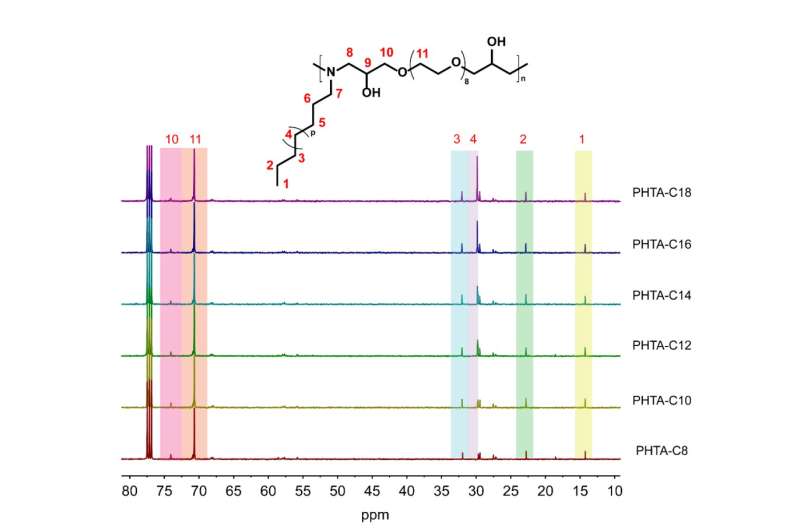Researchers develop a safer carrier for cancer vaccines

Lipid nanoparticle (LNP)-based messenger ribonucleic acid (mRNA) vaccines have recently emerged as a promising strategy for the prevention and treatment of cancers, as well as infectious diseases. LNPs are carriers that safely and effectively deliver nucleic acid vaccines, eliciting a strong immune response.
One milestone is the clinical use of leading LNP mRNA vaccines against COVID-19, which exhibits different degrees of protection efficacy, as well as some side effects. As these vaccines are known to be safe, efficient and easily developed, they have been widely used as protection against various human diseases, especially malignant cancers. Despite its high take-up rate in cancer treatment, the common side effects of pain, swelling, and fever, continue to be present, potentially due to inflammatory qualities within the LNPs, that form part of vaccines.
In the study published in Advanced Materials, Prof Chen and his team synthesized a series of alternating copolymers, which can work as vehicles and help mRNA cargos deliver into cells. After entry into cells, mRNA is translated into protein antigens and kill the disease. In the process, the stability of polymeric nanoparticle (PNP) is maintained, which can ensure accurate transmission of all genetic information to the targeted action sites of the antigen to kill the disease. This ensures the efficacy and safety of the vaccine.
Professor Shawn Chen Xiaoyuan, Nasrat Muzayyin Professor in Medicine and Technology, and Director of the Nanomedicine Translational Research Programme at the Yong Loo Lin School of Medicine, National University of Singapore (NUS Medicine), and a team of researchers, have developed potent yet low-inflammatory mRNA cancer vaccine vectors—non-harmful vehicles that deliver the DNA instructions into cells, which in turn trigger protective immunity against the cancer cells. Instead of LNPs, they applied polymers as the carrier for cancer mRNA vaccines.
As carriers, these polymers can similarly deliver vaccine antigens, proteins, and drugs to the site of action, with lower inflammatory responses. With similar functions in vaccines, polymers have a larger molecular weight than lipids, and preclinical studies in the paper suggested that the polymers did not show difference in safety levels.
Currently, the research team is working on optimizing the performance of the polymeric carrier. Its lead structure would be subjected to further studies and clinical translation in the next 18 to 24 months. "This vaccine offers a treatment which could better benefit cancer patients by being potentially potent with low side-effects, and we are hopeful about its efficacy," said Prof Chen.
More information: Pei Huang et al, Integrated Polymeric mRNA Vaccine without Inflammation Side‐Effects for Cellular Immunity Mediated Cancer Therapy, Advanced Materials (2022). DOI: 10.1002/adma.202207471
Journal information: Advanced Materials
Provided by National University of Singapore




















